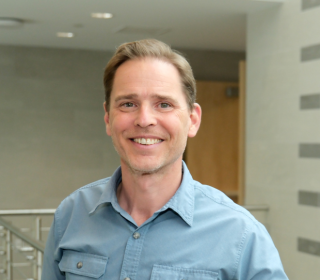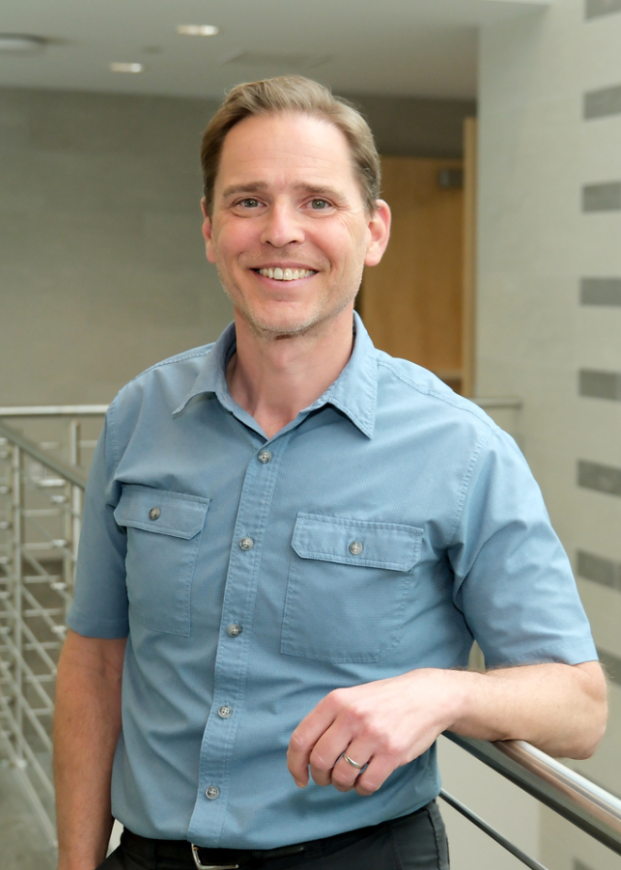Associate Professor Robert Shapiro of the Education Department believes practical application is the key to effective teaching of graduate students.
“The primary difference between teaching undergraduates and graduate students has to do with context,” he said. “At the graduate level, when I’m teaching Applied Behavior Analysis (ABA), what we’re teaching has to pass the ‘So what?’ test: We can look at interventions and how behavior works, but you have to ask, ‘So what? Why does this matter? How is it changing someone’s life so it’s meaningful?’ At the grad level you’re working with professionals who, if they’re not already involved with ABA, they’re in a teaching setting. It’s about immediately being able to take what we’re talking about in class, and at a minimum be able to apply it in practice.”
Shapiro first experienced Fitchburg State as a graduate student himself, completing a master’s degree in counseling psychology in 1998. He was working as a manager in a residential setting with adults with cognitive disabilities when he decided to continue his education.
“Fitchburg State was a welcoming place, and I loved to interact with folks who knew what they were talking about,” he said. “I enjoyed being able to interact with the adjunct instructors who were still rolling up their sleeves and doing the work.”
He has adopted that approach himself, ever mindful of his graduate students’ high expectations for the educational experience they are seeking. In addition to his teaching, he founded Shapiro Educational and Behavioral Consultants, an agency that provides behavior analytic support to children and young adults with autism. Through the agency, Shapiro has had the opportunity to provide paid mentorship opportunities to multiple Fitchburg State graduate students, letting them pursue fieldwork towards becoming Board Certified Behavior Analysts (BCBAs).
The online option affords my students the flexibility to attend to lectures and material in a way that works for them, at a time that works for them, and to break it up however they need to break it up. It’s much more doable for the working professional.
Shapiro has embraced the versatility of online teaching to serve his graduate population. “When I started off as an adjunct there was no online option,” he said. “Now, it affords my students the flexibility to attend to lectures and material in a way that works for them, at a time that works for them, and to break it up however they need to break it up. It’s much more doable for the working professional.”
As chair of the Applied Behavior Analysis certificate program, Shapiro has kept it updated to national standards, allowing graduates to become BCBAs. This has involved major revisions to coursework and syllabi in order to preserve the university’s institutional standing in the field. He also designed a master’s degree in guided studies to give students interested in Applied Behavior Analysis a credential that will closely map their intended careers.
He also co-created Fitchburg State’s Autism Spectrum Disorders certificate, and serves as its chair, guiding it through the lengthy review process required to earn the Department of Elementary and Secondary Education’s Autism Endorsement.
Beyond teaching, Shapiro has embraced the importance of recruiting, hosting webinars and participating in other outreach efforts to help spread the word about the university’s programs.
“It’s a necessary part of the job,” Shapiro said. “If we’re not actively recruiting students, then the program doesn’t exist. It sounds corny, but I truly believe in the power of ABA to make the world a better place for individuals, and overall. The more people can learn about the field, the more we can put to bed some of the misconceptions about the field, and the better we’re going to make the world.”

